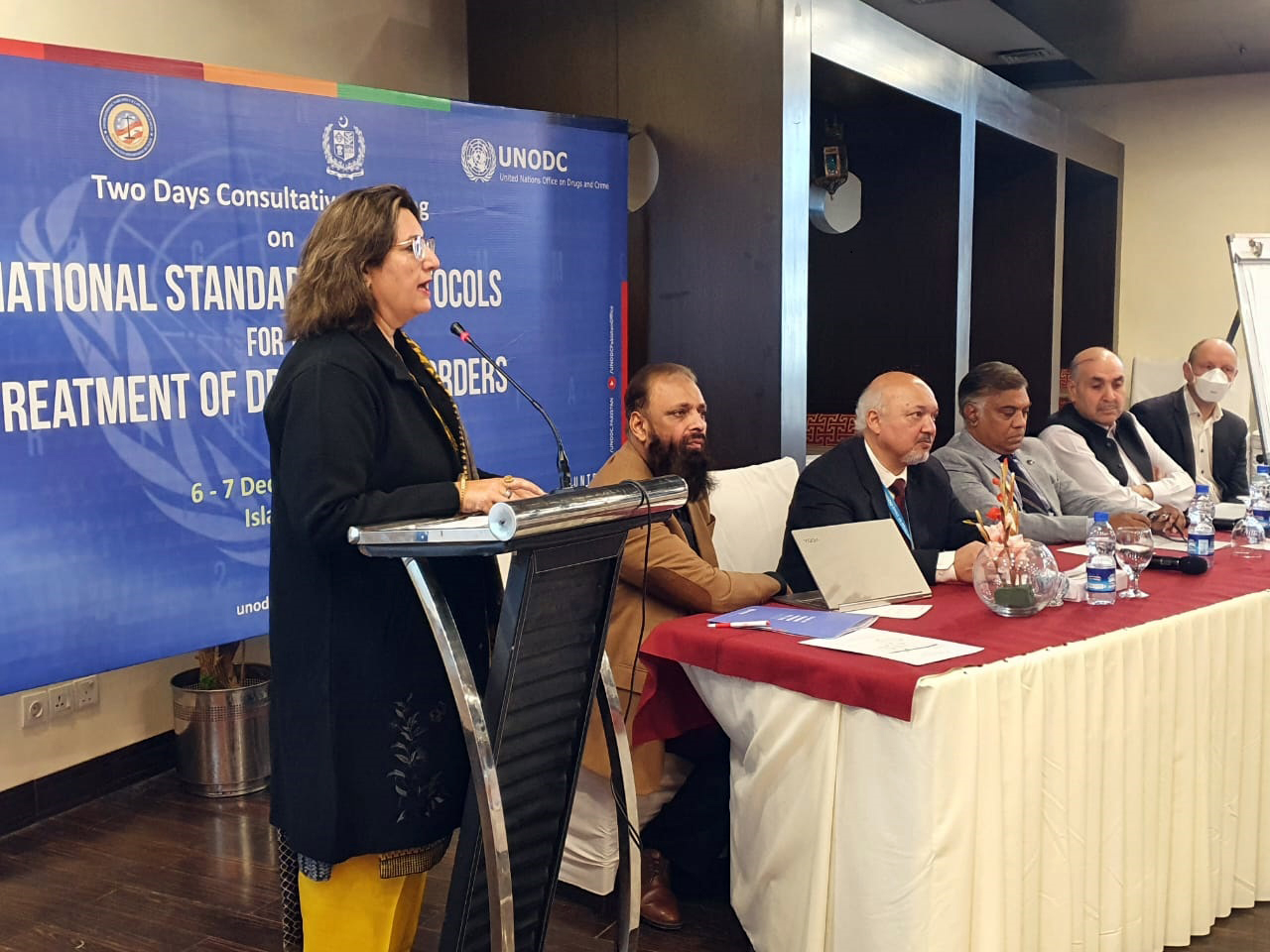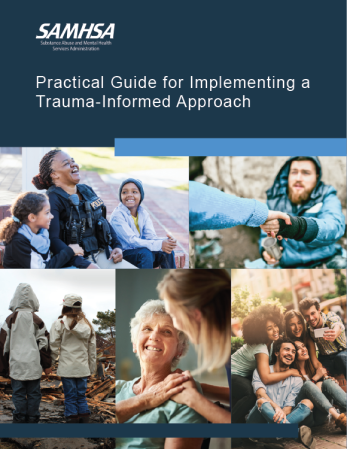Search
Quality Assurance
The application and integration of the best available research, clinical expertise, quality marks and patient preferences to ensure high-quality care in substance use disorders services.
Assessment of Medical Cannabis and Health-Related Quality of Life
Abstract
Importance The use of cannabis as a medicine is becoming increasingly prevalent. Given the diverse range of conditions being treated with medical cannabis, as well as the vast array of products and dose forms available, clinical...
UNODC supported delegations from four Central Asian countries in a high-level study tour to the United Kingdom
The UNODC Regional Office for Central Asia (ROCA) together with the UNODC Prevention, Treatment and Rehabilitation Section (PTRS) organized a study tour for high-level representatives, including senior officials, policymakers and substance...
Economic Evaluations of Pharmacologic Treatment for Opioid Use Disorder: A Systematic Literature Review
Abstract
Objective
The crisis of opioid use puts a strain on resources in the United States and worldwide. There are 3 US Food and Drug Administration–approved medications for treatment of opioid use disorder: methadone, buprenorphine...
Situation of Homelessness and Substance Use in India and the Impact of COVID-19 Pandemic
Availability of safe and comfortable shelter is one of the elementary human needs essential for both an individual’s survival as well as social development. However, even in the 21st century, about one fifth of the world’s population...
Psychoactive Prescription Drug Abuse: Selected Psychological Symptoms and Quality of Life in Addiction Treatment. Study Protocol
BACKGROUND: The abuse of psychoactive prescription drugs has become increasingly common in the Czech Republic. These drugs include sedatives, hypnotics, anxiolytics (benzodiazepines and Z-hypnotics), and opioids. Patients with an addiction...
Building Resilience and Bouncing Back from setback in Recovery: The PEER Perspective
Profiles of quality of outpatient care use, associated sociodemographic and clinical characteristics, and adverse outcomes among patients with substance-related disorders
Abstract
Background
This study identified patient profiles in terms of their quality of outpatient care use, associated sociodemographic and clinical characteristics, and adverse outcomes based on frequent emergency department (ED) use...
Correlates of treatment engagement and client outcomes: results of a randomised controlled trial of nabiximols for the treatment of cannabis use disorder
Introduction
There is increasing interest and evidence for the use of cannabinoid medications in the treatment of cannabis use disorder, but little examination of the correlates of successful treatment. This paper is a secondary analysis...
Black girls and referrals: racial and gender disparities in self-reported referral to substance use disorder assessment among justice-involved children
Background
There is a higher prevalence of substance use disorder (SUD) among justice-involved children (JIC). It is critical to ensure that JIC who report current use are referred for SUD assessment and potentially life-saving treatment...
Disruptions to U.S. local public health’s role in population-based substance use prevention and response during COVID-19
Background
COVID-19 dramatically limited the scale and scope of local health department (LHD) work, redirecting resources to the response. However, the need for essential public health services—including substance use prevention—was not...
Experiences of frontline healthcare workers and their views about support during COVID-19 and previous pandemics: a systematic review and qualitative meta-synthesis
Background
Healthcare workers across the world have risen to the demands of treating COVID-19 patients, potentially at significant cost to their own health and wellbeing. There has been increasing recognition of the potential mental health...
Supporting Government of Pakistan’s in its efforts to ensure standardized, adequate, and evidence-based drug dependence treatment and care

UNODC in collaboration with the Ministry of Narcotics Control (MoNC) and the Ministry of National Health Services Regulation and Coordination (MoNHSR&C) and with the generous support from US/INL, is developing National Standards and...
National policymakers and key stakeholders in Kyrgyzstan enhance their knowledge on drug use disorder system Quality Assurance through UNODC training
The UNODC Regional Office for Central Asia (ROCA) conducted a National Training “UNODC Drug Use Disorder Treatment Systems Quality Assurance (QA)” which took place in Bishkek, Kyrgyzstan on 28-30 November 2022.
This capacity building...
INL DDR Partners Call - Quality Assurance
This month on November 9th, 2022, the International Narcotics and Law Enforcement Affairs (INL) DDR Partners meeting offered a discussion on quality assurance and included two presentations:
- Building Quality Improvement for SUD Treatment...
General Principles of Contingency Management for Smoking Cessation
Contingency management (CM) is a psychological treatment based on operant conditioning. It consists of providing incentives in exchange for achieving a target behaviour such as abstinence or other treatmentrelated variables (e.g. session...
Effects of a brief pre-admission telephone reminder on no-show and dropout rates in substance use disorder treatment: a quasi-experimental study
Background
Appointment no-show and early dropout from treatment represent major challenges in outpatient substance use disorder treatment, adversely affecting clinical outcomes and health care productivity. In this quasi-experimental...
Interdisciplinary collaboration in the treatment of alcohol use disorders in a general hospital department: a mixed-method study
Background
In somatic health care settings, interdisciplinary collaborations (where various disciplines work coordinated and interdependently toward shared goals) are considered to yield higher team effectiveness than multidisciplinary...
Perspectives of service providers on aftercare service provision for persons with substance use disorders at a Rural District in South Africa
Background
Aftercare programs for people with substance use disorders (PWSUD) are frequently challenged with a number of overlapping obstacles, including uncertain policy consequences and a lack of resources. Despite demographic variety...
Further enhancing the implementation of quality standards in drug demand reduction across Europe
Project update
QUALITY CHAMPIONS EVENTS - PALMA DE MALLORCA, 5TH-6TH MAY, 2022
This event, offered in a hybrid format, was attended by 68 participants –53 in person and 15 online—who presented and discussed initiatives on prevention...
Quality of life profile of methadone maintenance treatment patients in Ho Chi Minh City, Vietnam
Aim: To determine the health-related quality of life (HRQoL) of methadone maintenance treatment patients in Ho Chi Minh City, Vietnam. Subject and Methods: A cross-sectional study was conducted in 967 patients being treated at two methadone...
Share the Knowledge: ISSUP members can post in the Knowledge Share – Sign in or become a member





